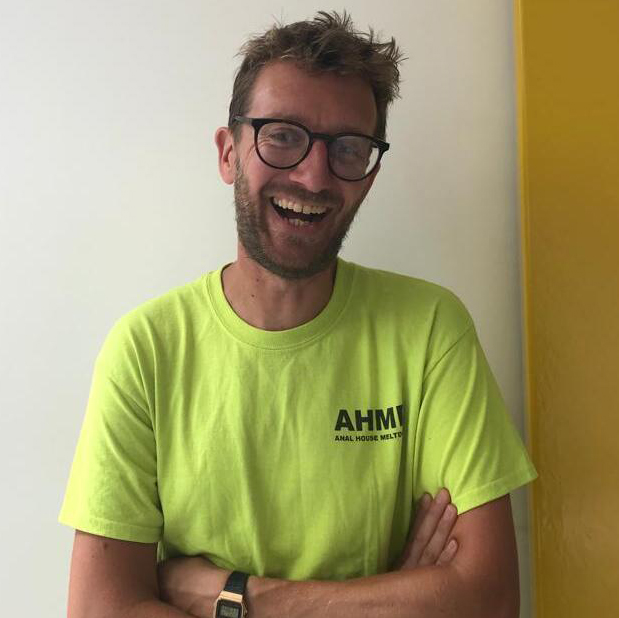“I’d urge anyone wanting to make music to avoid waiting around for others to give you permission”: Eli Keszler on staying true to yourself as an artist, working with Skrillex and Oneohtrix Point Never, and his self-titled new project
The Grammy-nominated composer, percussionist and producer talks fusing drums and electronics, the inimitable sound of classic samplers and the magic of decades-old DSP
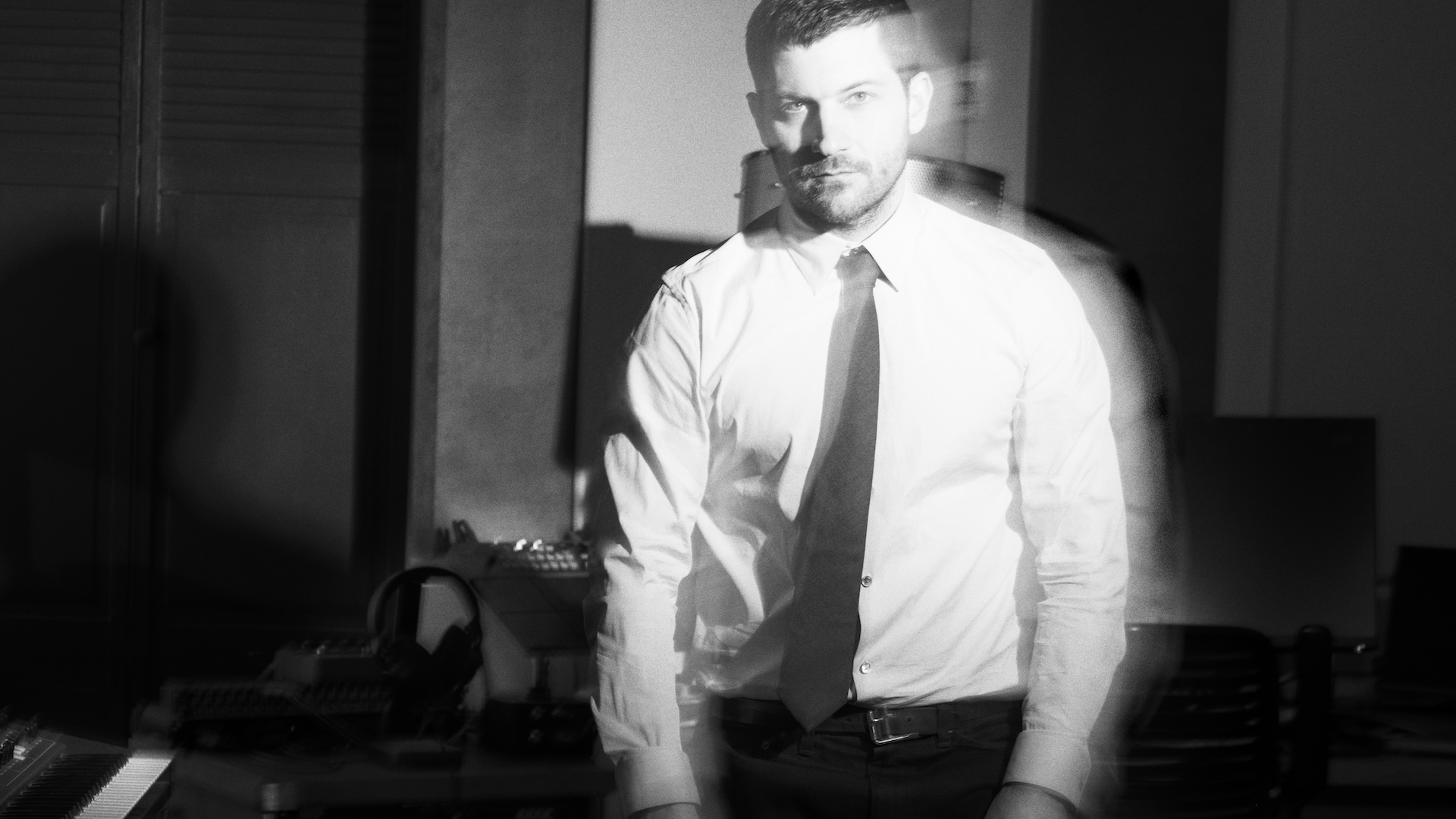
With Grammy nominations, film scores and collaborations with artists ranging from Skrillex to Oneohtrix Point Never, American musician, percussionist and composer Eli Keszler is as prolific as he is accomplished. But it’s only now, on his eleventh album, that he’s choosing to self-title a record.
“It’s because I feel it’s the most authentic music I’ve ever made, it’s most reflective of what I actually love,” says Keszler on why now is the time to place himself at the front and centre of a release.
“Whether it be a type of song I obsess over, certain types of instrumental music, new music, avant-garde and classical, it has all these elements - it’s a statement that is the most ‘me’.”
Released via LUCKYME this month, the album is the latest chapter in Keszler’s story that has seen him progress from his roots in Boston’s underground music scene to stages around the world. Instrumentally, he’s most closely associated with the drums, but his music far surpasses traditional notions of what a kit can sound like.
“I found the best way to interface with contemporary music has been to forget about my instrument”
“I found the best way to interface with contemporary music has been to forget about my instrument,” he says. “When I play, I follow my voice, I let my body conjure what it can from whatever tools I’m using - this leads me to all sorts of strange areas that look and sound very unconventional.”
Keszler was raised in a family of music lovers in Boston with a father who was a guitarist. This meant his early life was shaped by constant playing, while living surrounded by instruments in various states of disrepair.
“I always played, then as a teenager, I worked out that I wanted to be a composer and artist and started writing music,” he says. “I was raised in Boston where there was this very active underground music scene with experimental film. As I grew up, I fell into this milieu of artists and possibilities.”
Want all the hottest music and gear news, reviews, deals, features and more, direct to your inbox? Sign up here.
There were rhythms to a life in Boston that were comparatively laid-back compared with Keszler’s current base in the more frenetic metropolis of New York. This gave him the space to investigate and explore, flitting between rock and hardcore bands alongside his studies at Boston’s New England Conservatory of Music.
“New York is great, but we’re all so fast and focused,” he says. “In Boston, it was way more relaxed, I went to gigs and events, met people in a really organic way. I was eventually asked to participate and join this underground music community.”
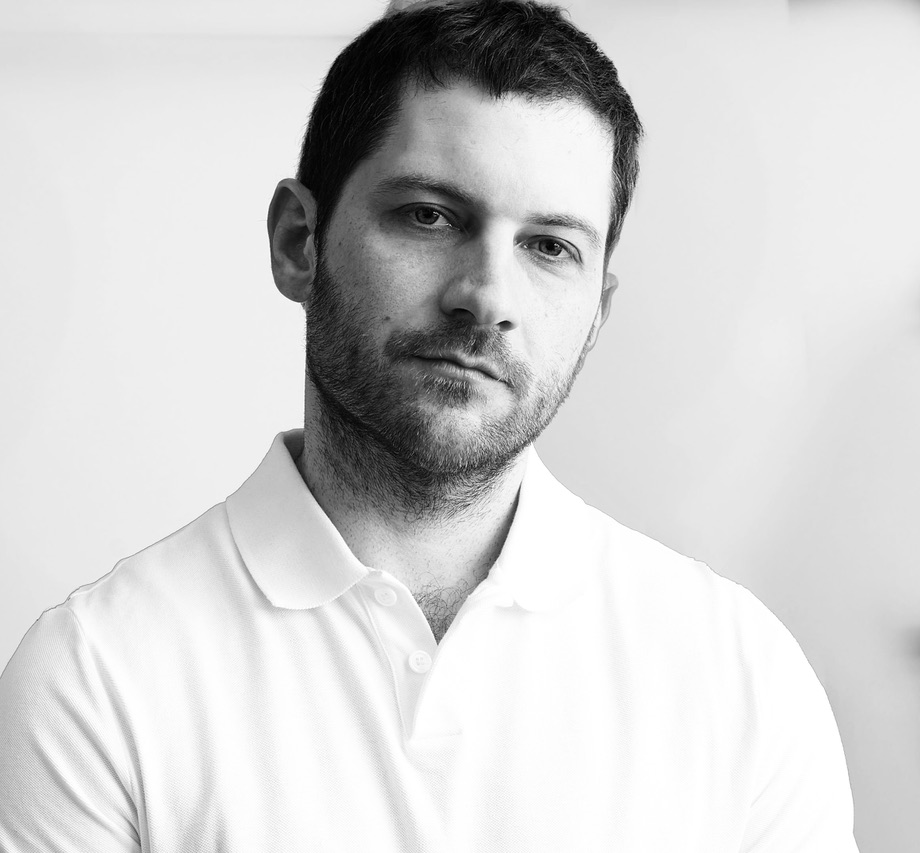
From early self-released moments for his own R.E.L label following his studies to 2018’s Stadium project via exhibitions, installations and high-profile partnerships with Laurel Halo and Oneohtrix Point Never, Keszler’s music has constantly flexed in time with new preoccupations and themes. His latest album is one of abstract electronica, orbiting a noirish song cycle with guest appearances from vocalist Sofie Royer and saxophonist Sam Gendel.
“As a precursor to this album, I ended up making full records as drafts over a course of a few years,” Keszler says of his creative approach. “This process allowed me to arrive at a technique and language that could then evolve quickly into the songs on this record.”
“The process of discovering a sound palette can be slow, but the execution is fast,” he continues. “By the time I’ve honed in on the syntax, my music becomes like a faucet - I turn it on and it just comes pouring out.”
The album marks a new chapter in Keszler’s career, one he cites as opening up via his work on scores for films including The Scary of Sixty-First and Lotfy Nathan's award-winning feature Harka.
“With film projects, you’re often thrown into a lot of high-pressure settings where you have limited time to come up with something,” he explains. “It comes with challenges, but I have found it an incredible way to discover new techniques.”
The whole record glides between sophisticated styles and textures, loosely tethered by Keszler’s drumming to trip-hop, ambience, jazz and dreamier, darker whispers of sound.
“I’m very pleased with the album, Ever Shrinking World is a highlight, then out of all the songs with Sofie Royer, I’m really pleased with Low Love and Speak for Me, these slower ballad type songs,” he explains. “I’ve not made music like this before and these tracks have started something, I’m hearing all sorts of things in my head on where to go next.”
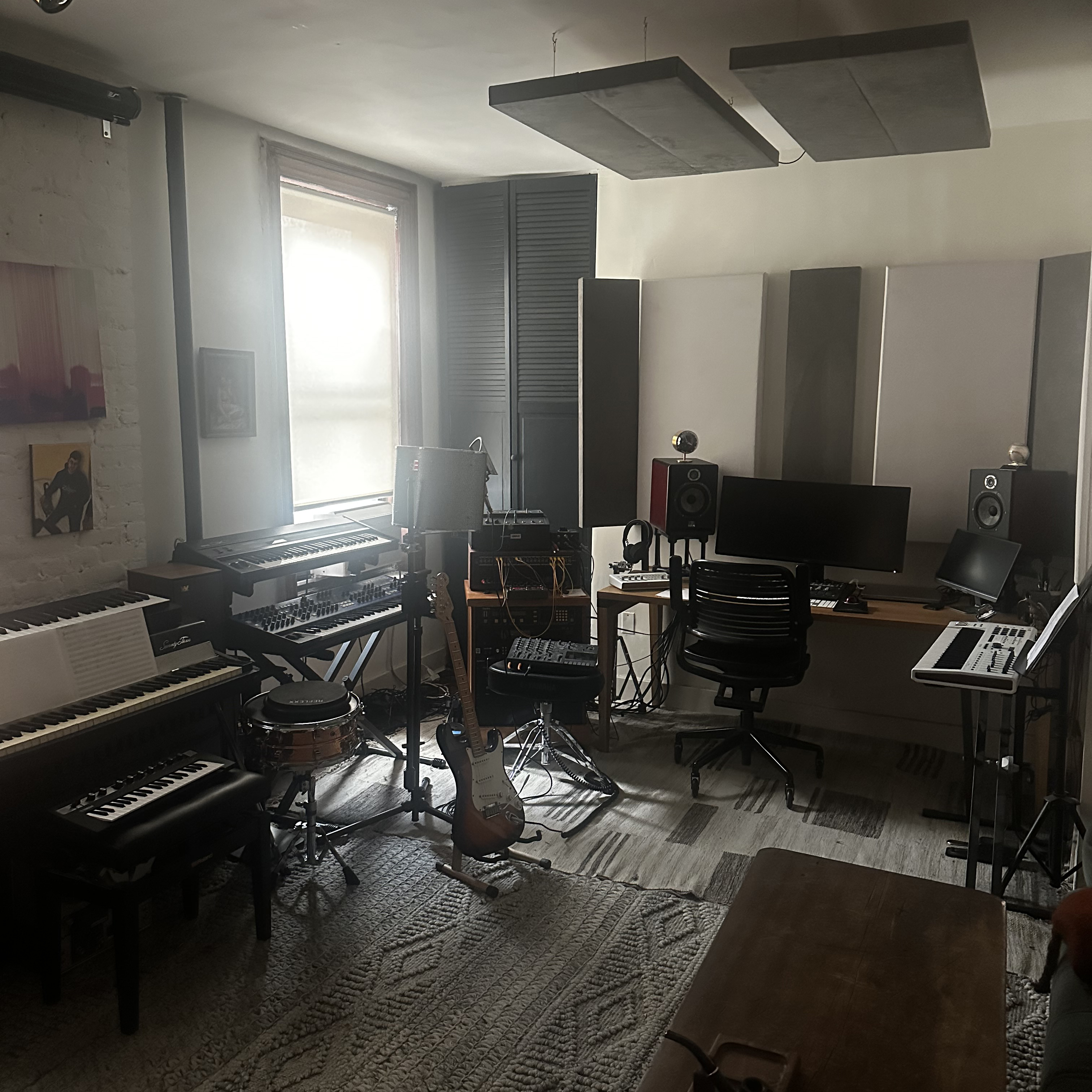
Keszler’s relationship with his software and equipment is a restless one. Rather than coveting certain items, he frequently buys and sells gear in attempts to pin down specific sounds that he’s striving to hear. The only items that remain in his Manhattan studio are those that he can utilise for whatever project is occupying his attention.
“I have space issues and am not a gear collector,” he laughs. “So if I like it but can live without it, I move on. I did go through a lot of samplers and ended up working with an MPC2000 XL alongside the Akai S612 on tracks like Drip Drip Drip and the interludes. The former has this magical way of loading and processing sound, you put something in and it emerges sounding stranger and harsher.”
Elsewhere, Metasynth - the image-based sound design tool famously used on Aphex Twin’s Windowlicker - is all over the record, while Keszler experimented with various Reaktor patches as a signal processor for his guitar. An Eventide Space Pedal is Keszler’s go-to reverb for synths and guitars, while he utilises GRM Tools’ comb filter and resonator on vocals.
“I went down this rabbit hole of computer-based digital processing and discovered that digital tools from 20 years ago created what I was looking for”
“I went down this rabbit hole of computer-based digital processing and discovered that digital tools from 20 years ago created what I was looking for,” Keszler says. “I do find new tools beautiful, but sometimes too curated. I’m not looking for a perfect sound - instead, I want something to surprise me and give me the rawest version of my idea. I don’t like being forced into an aesthetic and having to pull myself out of it. When that happens, it’s very disruptive, it’s like someone interrupting a conversation.”
Previously, Keszler used Pro Tools as his DAW of choice but switched to Logic 15 years ago due to its balance of MIDI tools and ease of editing. He also uses a Tascam Portastudio tape machine that belonged to his father for processing. Ableton Live acts as the hub for his live performance, alongside various drum triggers. While these are the foundations of his studio and musical approach, there’s always a desire to find plugins or pieces of hardware that can distort or malfunction.
“I like plugins that behave in an interesting but neutral way,” he says. “It’s the same with hardware, if you plug it in the wrong way, it will feedback and sound bad. I’ll mess up and things will go wrong, but I look for hardware that has this potential to be out of control. That’s fun and exciting to me.”
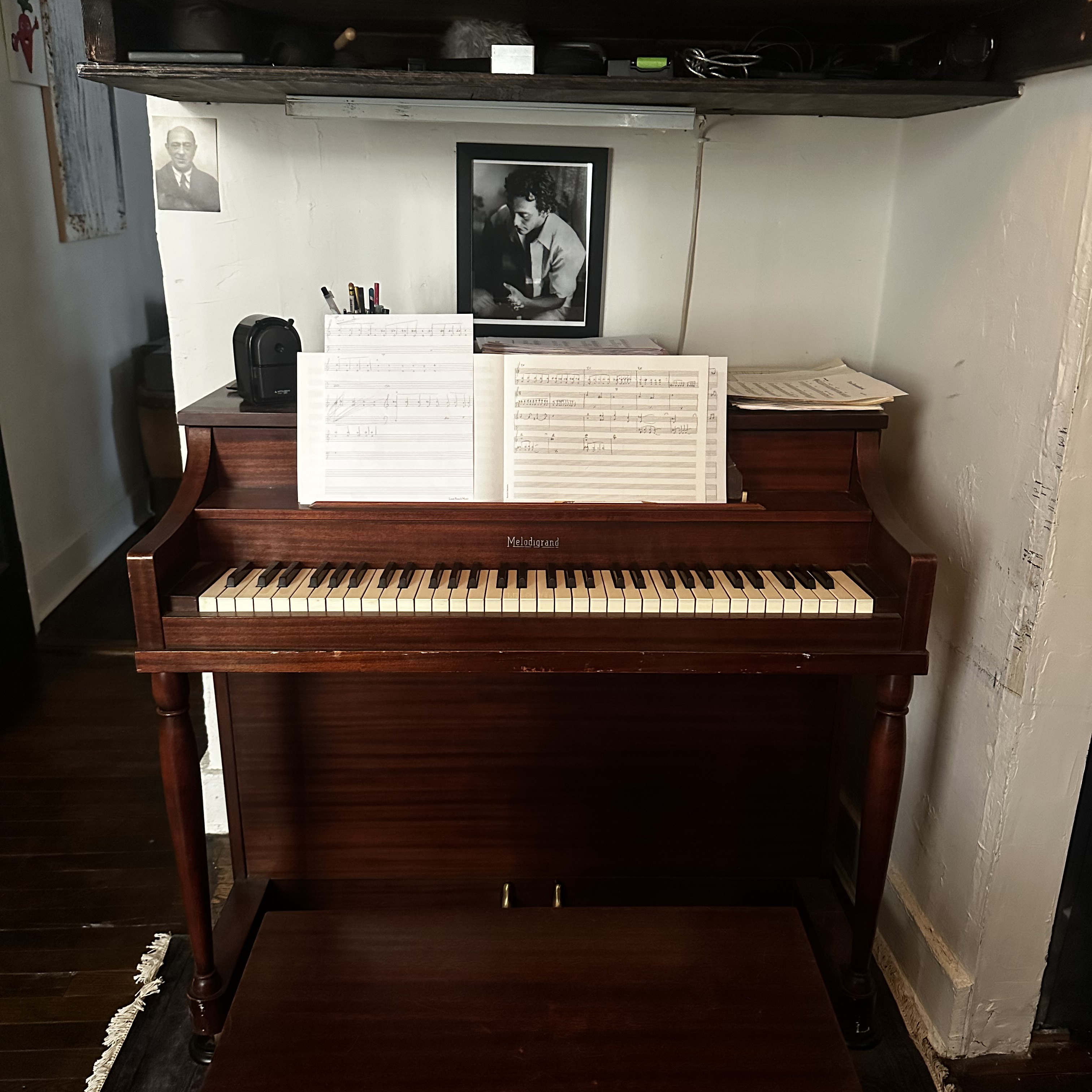
As an artist and composer, Keszler’s name is closely associated with the drums and his extraordinarily unique playing style, a talent that underpins his new record. But he’s also excited to embrace other instruments, with the piano equally as integral to his music.
“When I’m at the drums, I’m very comfortable, you can put anything in front of me and I can play it,” he says. “The piano is a more analytical space for me, I play slowly, find a harmony that is beautiful and take a minute to work out what it is. I write it down, it’s a tool for writing and performing.”
“I have a very strong connection with the drums but I have no attachment to them,” Keszler adds. “I think that’s why I have been able to come up with my own way of playing.”
The Sheets of Sound concept is a technique born from the improvisation of jazz saxophonist John Coltrane, then elevated by Evan Parker. Keszler’s freewheeling approach to his music ricochets off this, his melding of drums and electronics providing a contemporary take on the practice.
“My ambitions were to translate this to my instrument rather than go purely electronic,” he says. “I started doing a variety of experiments, preparing the drums in certain ways, working with bells and crotales, these tuned disks that sustain and resonate. I came up with this whole way of working with this tapestry and endless stream of sound - it’s something I’m continuing to explore.”
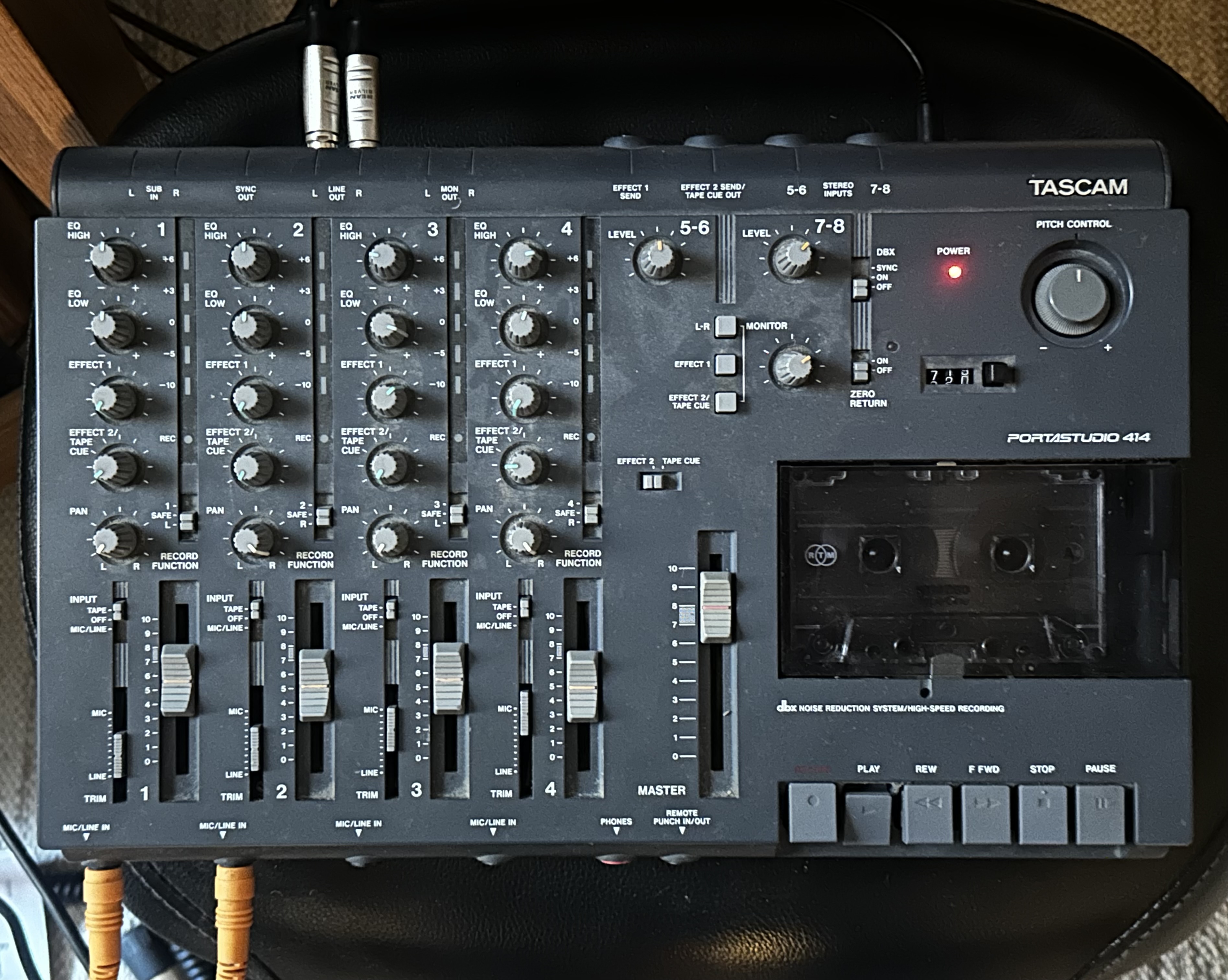
From working with directors to partnering with fellow auteurs on projects, a willingness to collaborate in a bid to push his music forward has long driven Keszler. He sees this as essential to ensure he never rests on his laurels, that creatively he’s always discovering new tangents.
“It’s human nature to assume that because you do something a certain way, that’s the way it has to be,” he says. “But when you work with others, you’re forced to do something different. Often, it turns out that not only were you wrong about it, but this leads to great ideas and pushes you into areas that you normally wouldn’t feel comfortable with.”
Daniel Lopatin, better known as Oneohtrix Point Never, and Keszler came from the same basement music scene in Boston, originally meeting when they were in their early twenties. He met Laurel Halo as part of the Brooklyn music scene while he connected with Skrillex at a gig - their unlikely union led to A Street I Know from the Quest for Fire album. Each has brought a different energy for Eli to respond to.
"Dan’s music needed a lot of sampling, quick changes from beats to textural music and noise, while triggering sounds. This technique is now with me forever"
“Uniting with someone like this can shape how you play and any creative decisions you make,” says Keszler. “I find myself morphing into whatever the situation requires, which is a cool feeling - to feel like you’re shapeshifting to fit their world and they’re doing the same for you. It’s a beautiful and transformative process.”
With Lopatin, Keszler was part of the touring band for MYRIAD tour and Age Of album, a project that led him to explore the possibilities of a fully integrated electro-acoustic kit for the first time.
“I started using Sensory Percussion, this great drum synthesis tool, and it opened these floodgates for me,” he says. “I felt like I could do whatever I wanted to, and Dan’s music needed a lot of sampling, quick changes from beats to textural music and noise, while triggering sounds. This technique is now with me forever, it was an important thing for me.”
Other collaborations with film directors have also taken Keszler in bold new directions. It’s a markedly different approach, requiring the music to frame and enhance visual stories, and has had a profound impact on his own releases.
"I’d urge anyone wanting to make music to avoid waiting around for others to give you permission or be ready"
“I found the best way to score films is to be totally egoless, all I need to think about is the story,” he says. “Music and image is a complicated subject, things work in weird ways. A piece of music that I would never necessarily listen to independently of a film is the perfect thing for a film, that’s a cool and strange process I really enjoy.”
Keszler’s musical brain is tirelessly experimental, and whatever project he takes on, he remains dedicated to exploring new frontiers through his creativity. While many of his peers from his university days have left music behind, he is still chasing the next sound.
“A lot of people get into music for the euphoric feeling of creativity, but that’s the reward at the end of an extremely intense process,” he says. “I’m going to keep doing this regardless of the results. I love collaborating but I’d urge anyone wanting to make music to avoid waiting around for others to give you permission or be ready.”
“We have this crazy culture which believes that if you’re in your mid-20s and you haven’t ‘made it’, then you’re not going to,” he continues. “You need to ignore this and be true to yourself, that’s what I’ve always done. I’ve created my own island of work that I’ve wanted to do. It’s not always easy but there’s lots of value to pursuing this path.”
Visit Eli Keszler’s website or stream Eli Keszler on Bandcamp.
Jim Ottewill is an author and freelance music journalist with more than a decade of experience writing for the likes of Mixmag, FACT, Resident Advisor, Hyponik, Music Tech and MusicRadar. Alongside journalism, Jim's dalliances in dance music include partying everywhere from cutlery factories in South Yorkshire to warehouses in Portland Oregon. As a distinctly small-time DJ, he's played records to people in a variety of places stretching from Sheffield to Berlin, broadcast on Soho Radio and promoted early gigs from the likes of the Arctic Monkeys and more.
You must confirm your public display name before commenting
Please logout and then login again, you will then be prompted to enter your display name.

